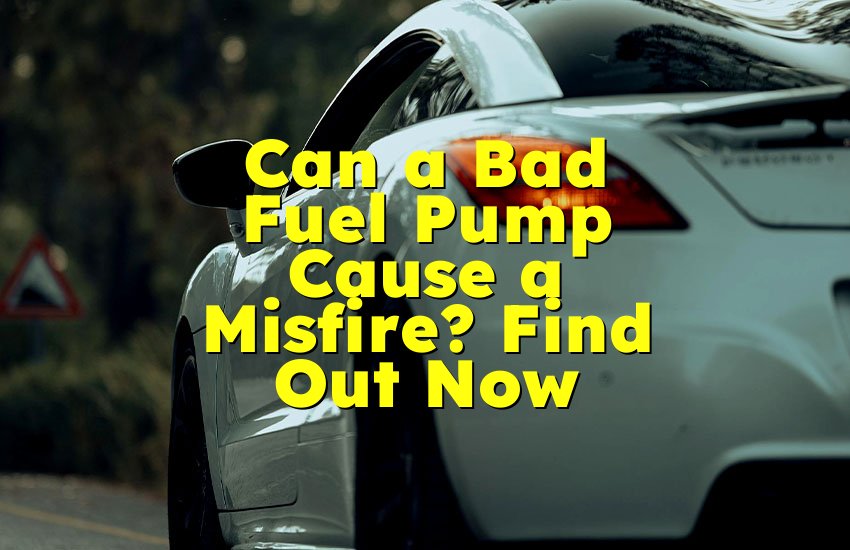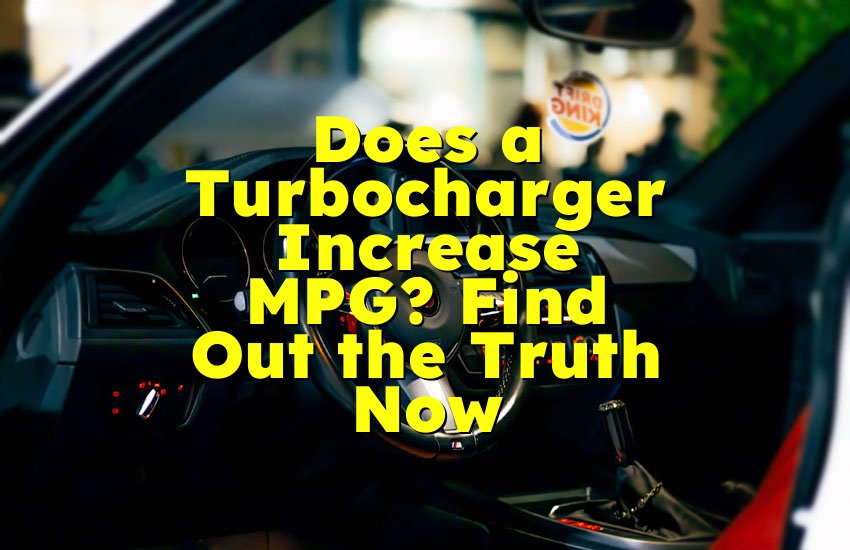As an Amazon Associate, I earn from qualifying purchases at no extra cost to you.
Can a Bad Fuel Pump Cause a Misfire? Find Out Now!
If your car is misfiring, it can be scary and frustrating. The quick answer is yes—a bad fuel pump can cause a misfire. When the pump fails to send enough fuel to the engine, your car struggles to run smoothly. You might feel rough idling, hesitation, or stalling. In this article, we will explore why a faulty fuel pump can lead to misfires and what signs to watch for.
Understanding How a Fuel Pump Works
A fuel pump moves gasoline from the tank to the engine. Without the right fuel pressure, your engine cannot run properly. Most modern cars use electric fuel pumps that work inside the fuel tank.
They push fuel through lines and filters to the injectors. When the pump is weak or failing, the fuel flow drops. This causes uneven combustion and misfires because some cylinders do not get enough fuel.
Fuel pumps are designed to deliver a steady, consistent amount of fuel. Any interruption, like a clogged filter or worn pump, can cause engine problems. Sometimes a fuel pump fails gradually. You may notice the car sputtering or hesitating during acceleration. If ignored, this can lead to repeated misfires and damage to other parts.
A misfire occurs when the fuel-air mixture in one or more cylinders does not ignite correctly. A bad fuel pump can create this exact situation. If fuel pressure is low, the spark plugs cannot light a proper mixture. You may feel the engine shaking or hear unusual sounds. Paying attention to these signs early can prevent bigger repairs.
Car owners often overlook fuel pumps. They focus on spark plugs or ignition coils first. However, checking fuel pressure with a gauge is easy. A professional mechanic can test the pump quickly. If pressure is too low, replacing the pump usually fixes the misfire.
- Fuel pumps deliver fuel from the tank to the engine.
- Low fuel pressure causes uneven combustion.
- Gradual failure can make misfires worse over time.
- Testing fuel pressure helps diagnose the problem.
Signs Your Fuel Pump May Be Failing
One of the first signs of a bad fuel pump is difficulty starting. Your car may crank for longer than usual. Sometimes it may not start at all. Hesitation during acceleration is another common symptom. The engine may feel weak, especially when going uphill or carrying heavy loads.
You might also notice rough idling. The engine shakes, and the RPMs fluctuate. Misfires often happen during this time. Another clue is stalling while driving at low speeds. If your car dies randomly, the fuel pump may not be supplying enough fuel. Strange noises, like whining or buzzing from the tank, are also warning signs.
Fuel efficiency can drop too. Low fuel pressure makes the engine work harder to run. You may fill up more often than usual. Electrical problems can sometimes accompany a failing pump. For example, a weak pump might draw more current, affecting fuses and relays. Catching these symptoms early saves money and prevents bigger damage.
Professional mechanics often check fuel pressure with a gauge. Low readings confirm the pump is failing. It is also wise to inspect the fuel filter and lines. Sometimes a clogged filter mimics pump failure. However, if replacing the filter does not help, the pump is usually the culprit.
- Difficulty starting or no start at all.
- Engine hesitation or weak acceleration.
- Rough idling and misfires.
- Low fuel efficiency or unusual tank noises.

How a Bad Fuel Pump Causes Misfires
Misfires happen when the engine does not get the right fuel-air mixture. A weak fuel pump delivers inconsistent fuel pressure. This makes some cylinders starve for fuel. Without enough gasoline, the spark plugs cannot ignite the mixture properly.
The problem can appear under load. When you accelerate quickly, the engine needs more fuel. A failing pump cannot keep up. You may feel jerking, surging, or rough acceleration. Sometimes the car stalls at stoplights or slows down unexpectedly. Low fuel pressure directly impacts engine timing and performance.
Over time, repeated misfires can damage the catalytic converter. This is because unburned fuel enters the exhaust system. Other components like spark plugs and ignition coils can also wear faster. Fixing the fuel pump stops the misfire and prevents further engine damage. It also restores smooth driving.
Mechanics often test fuel pressure at the rail. If readings are below specifications, misfires usually follow. Replacing a weak pump or clogged filter solves the issue. Regular maintenance and timely inspection reduce the risk of pump-related misfires.
- Low fuel pressure starves cylinders.
- Engine misfires during acceleration or load.
- Unburned fuel can damage exhaust and engine parts.
- Testing and replacement restore performance.
Diagnosing Fuel Pump Problems
Checking the fuel pump is easier than most people think. First, listen for a humming sound from the tank when the key is turned. No sound can indicate a failed pump. Then, check fuel pressure with a gauge. Low or fluctuating readings confirm a problem.
You can also watch for engine behavior. Hesitation, misfires, and stalling are strong clues. Electrical tests may show voltage drops or blown fuses. Some cars store error codes in the computer that point to fuel system issues. Mechanics can read these codes quickly with a scanner.
Visual inspection is also important. Check fuel lines for leaks or clogs. Sometimes debris or rust blocks the pump. Fuel filters may be dirty. Cleaning or replacing filters can improve flow. However, if misfires continue, the pump itself likely needs replacement.
Remember, diagnosing early saves money. Ignoring signs can lead to bigger engine problems. Misfires, stalling, and rough idling all indicate urgent attention is needed. Proper testing ensures you replace only what is necessary.
- Listen for pump humming when key is on.
- Check fuel pressure with a gauge.
- Observe engine hesitation and misfires.
- Inspect lines, filters, and electrical connections.
Replacing a Faulty Fuel Pump
Replacing a fuel pump restores proper engine function. Begin by relieving fuel pressure to prevent spills. Disconnect the battery and remove the fuel tank if needed. Some pumps are inside the tank, while others are inline.
Install the new pump carefully. Make sure all connections are tight and hoses secure. Replace the fuel filter if it is old. Reconnect the battery and turn the key on to prime the pump. Check for leaks before starting the engine.
After replacement, test drive the car. The engine should run smoothly without hesitation. Misfires and stalling should stop. Fuel efficiency should improve, and acceleration should feel normal again. If problems persist, double-check installation and fuel lines.
Professional help is recommended for most people. Fuel systems are sensitive, and mistakes can be dangerous. Mechanics have the right tools and knowledge to replace pumps safely. Timely replacement avoids more expensive engine repairs later.
- Relieve fuel pressure before removal.
- Disconnect battery and remove tank if needed.
- Install pump and replace filter.
- Test engine and check for leaks.
Preventing Fuel Pump Failure
Regular maintenance extends fuel pump life. Replace fuel filters as recommended. Avoid letting the tank run too low frequently. Dirt and debris can enter the pump, causing wear.
Keep the fuel system clean. Add fuel system cleaners if recommended by the manufacturer. Check electrical connections periodically. A weak connection can damage the pump over time. Listen to unusual noises from the tank, like whining or buzzing.
Driving habits matter too. Avoid heavy loads when possible and drive smoothly. Sudden acceleration under low fuel pressure can strain the pump. Routine inspections by a mechanic help catch early problems before misfires start.
Preventing pump failure saves money and protects the engine. A well-maintained fuel system reduces misfires and keeps your car reliable. Attention to small details makes a big difference over the years.
- Replace filters regularly.
- Keep tank above low levels.
- Use fuel system cleaners occasionally.
- Watch for unusual noises and electrical issues.
Final Thoughts
A bad fuel pump can easily cause a misfire. Early detection is key. Watch for hesitation, stalling, or rough idling. Testing fuel pressure and replacing the pump prevents bigger engine problems. Regular maintenance keeps your car smooth and reliable. Taking action quickly saves time, money, and stress.
| Issue | Symptom | Action |
|---|---|---|
| Bad fuel pump | Engine misfires, stalls | Test pressure, replace pump |
| Clogged fuel filter | Hesitation, low power | Replace filter |
| Electrical issue | No start, weak pump | Check voltage, fuses |
| Low fuel | Car sputters | Fill tank regularly |
Frequently Asked Questions (FAQs)
Is it normal for a car to misfire with a bad fuel pump?
Yes, it is normal. A bad fuel pump can reduce fuel pressure, causing uneven fuel delivery. This leads to cylinders not firing correctly. Misfires may appear when accelerating or idling. Over time, repeated misfires can damage engine components. Replacing the pump usually stops these issues and restores smooth operation.
Can a weak fuel pump cause stalling?
Yes, a weak fuel pump often causes stalling. When the pump cannot supply enough fuel, the engine may die unexpectedly. This can happen at low speeds, stoplights, or under load. Stalling is dangerous if it occurs in traffic. Fixing the pump or filter usually eliminates this problem.
Do I need a mechanic to replace a fuel pump?
Yes, it is recommended. Fuel systems are pressurized and sensitive. Removing the pump involves handling fuel safely. Mechanics have tools and experience to install pumps correctly. Improper installation can lead to leaks, fire hazards, or continued misfires. Professional help ensures safety and proper function.
Is it safe to drive with a failing fuel pump?
No, it is not safe. A failing pump can cause sudden stalling, hesitation, or misfires. These issues can lead to accidents, especially on highways or busy streets. Driving with a weak pump may also damage the engine and exhaust system. Immediate repair is the safest choice.
Can a clogged fuel filter mimic a bad pump?
Yes, a clogged filter can appear similar. Both cause low fuel pressure, misfires, and hesitation. Checking the filter is an easy first step. If replacing the filter does not improve performance, the pump is likely failing. Proper diagnosis avoids unnecessary parts replacement.
Do I need to check electrical connections for fuel pump issues?
Yes, checking connections is important. A weak or loose connection can reduce pump performance. Voltage drops can mimic pump failure. Inspect wires, fuses, and relays for issues. Fixing electrical problems may restore fuel pressure without replacing the pump.
Is fuel quality related to pump misfires?
Yes, poor fuel can affect pump function. Contaminated gasoline can clog filters and damage the pump. Dirt, water, or debris may cause misfires. Using quality fuel and keeping the tank clean protects the pump and engine. Fuel system cleaners can help prevent buildup.
Can replacing the fuel pump fix misfires immediately?
Yes, replacing a bad pump usually stops misfires quickly. Proper fuel pressure ensures cylinders get enough fuel. After installation, the engine should run smoothly. Misfires, hesitation, and rough idling should disappear. Testing the car confirms the repair worked correctly.











